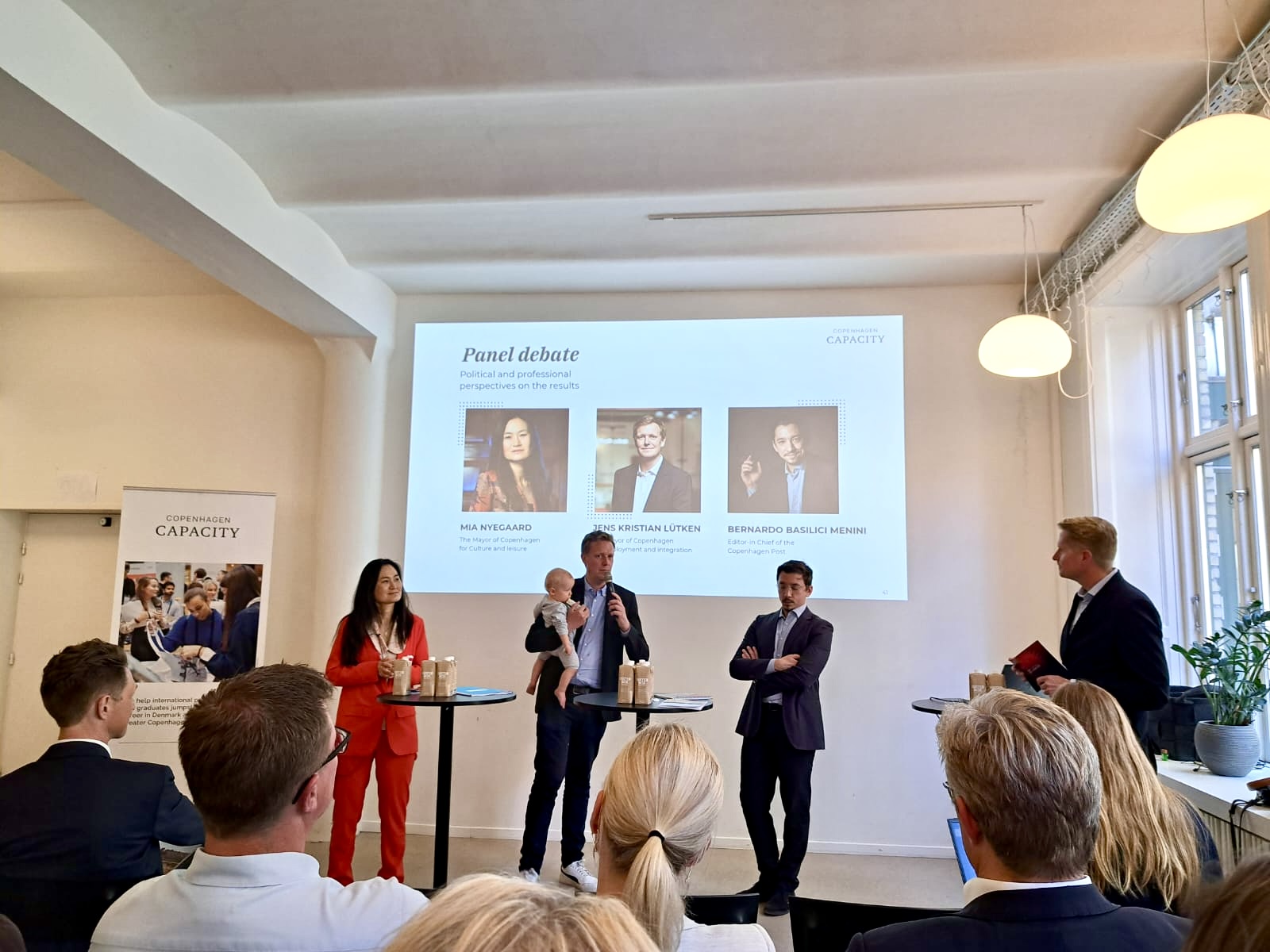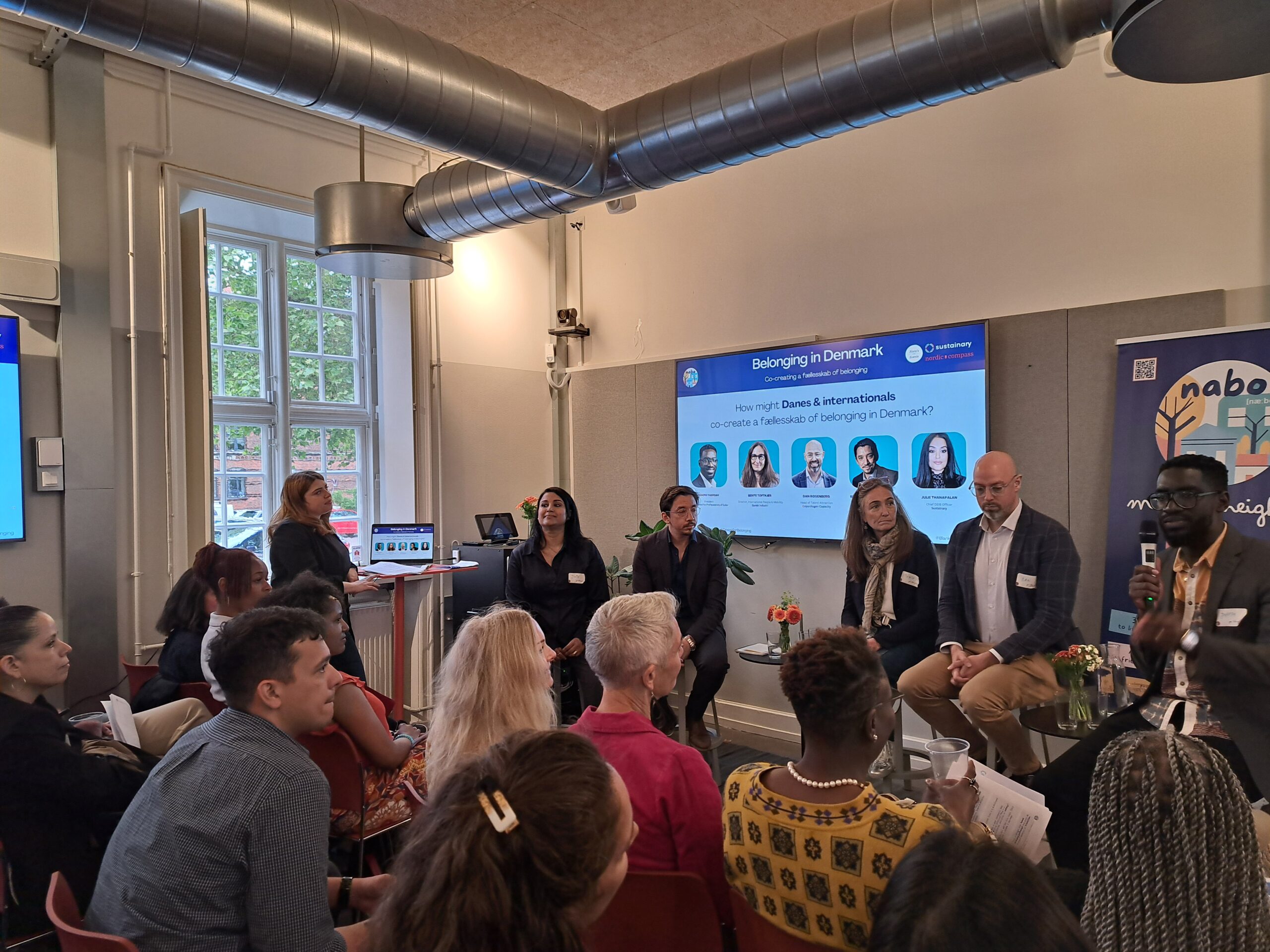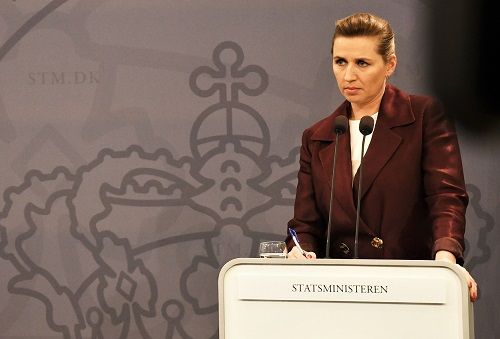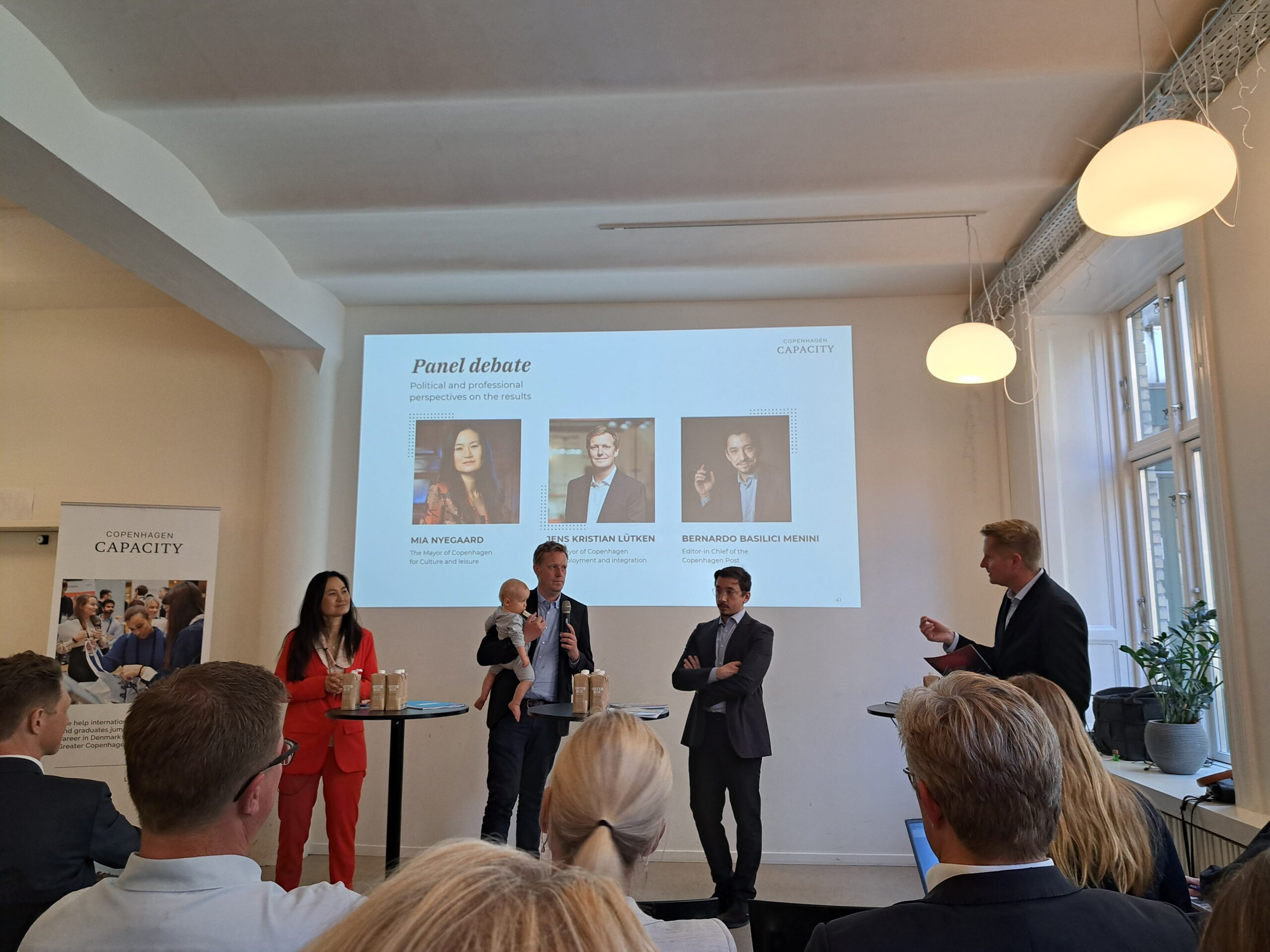A Nordic diet consisting of berries, vegetables, fish, whole grains, dairy products and rapeseed oil has been found to lower cholesterol and blood sugar levels, according to a study by the University of Copenhagen.
Additional benefits include a reduced risk of being overweight, having cardiovascular disease and developing type two diabetes.
Not just a weight-loss diet
“Most people think that the beneficial effects on blood sugar and cholesterol are solely due to weight loss – but we’ve demonstrated that there are other mechanisms at work,” explained researcher Lars Ove Dragsted.
Researchers from Denmark, Finland, Norway, Sweden and Iceland examined blood and urine samples from some 200 people over the age of 50 with elevated BMI and increased risk of diabetes and cardiovascular disease.
Participants were monitored over six months, during which half ate a Nordic diet, while the other half ate as usual. The Nordic group was instructed to maintain their starting weight.
Unique fat sources
“The group that was on the Nordic diet for half a year became significantly healthier with lower cholesterol, lower overall content of both saturated and unsaturated fat in the blood and better regulation of blood sugar, compared with the other group. Even without the weight loss we could see an improvement in health,” explains Lars Ove Dragsted.
“In the blood of the Nordic diet group, we found different fat-soluble substances to those of the control group. The substances seem to be linked to unsaturated fatty acids in the oils found in the Nordic diet.”
Fats in the Nordic diet include fish, flaxseed, sunflower and rapeseed. Though the correlation is clear, researchers are yet unable to explain the precise reason these fats lower cholesterol and blood sugar.
Danish astrophysicist presents novel black hole theory
A groundbreaking study by the University of Copenhagen into how black holes meet and collide has been published in the journal Nature. Astrophysicists analysed the gravitational waves emitted by the collisions, finding that some black holes orbit one another in ellipses rather than circles before colliding. This contradicts Einstein’s theories, which predict that pairs of black holes always strive to move in circles. So the team posited a new theory. At the core of most galaxies is a supermassive black hole, surrounded by a flat, rotating ‘disc’ of gas, which contains many smaller black holes. So far, the interactions between these smaller black holes have been calculated assuming they take place in three dimensions. “But then we tried to assume that things were happening in 2D, because a gas disk is actually flat. We found it resulted in a 100 times greater chance of an elliptical collision,” said the research lead Johan Samsing.
Giant Greenlandic crater is much older than supposed
New laser analysis methods have allowed researchers at the University of Copenhagen and the Natural History Museum to date the 31 km-wide Hiawatha asteroid crater, buried below Greenland’s ice sheet, at 58 million years old. When the iron-based meteor hit northwest Greenland with a force several million times greater than an atomic bomb, there was temperate rainforest. The jury is still out on whether the Hiawatha asteroid disrupted the global climate, but the new dating will allow scientists to better understand its climactic effects.
Stem cell transplants may revolutionise colitis treatment
Some 35,000 Danes suffer from colitis – a disease of the colon that causes pain and fatigue. Due to the stigma, many choose to live with the uncomfortable disease rather than alleviating it with a stoma. Now, researchers at the University of Copenhagen have demonstrated that stem cell transplantation in the colon can cure mice of colitis, boding well for a future form of human treatment that does not necessitate a stoma.
Danish brain researcher wins major neuroscience award
Ole Kiehn, one of Denmark’s leading brain researchers, has scooped the prestigious Brain Prize for his pioneering mapping of the neural networks in the brain and spinal cord that activate and control physical movement. The Brain Prize is the world’s largest neuroscience research award and will be presented on 25 May 2022 at a ceremony in Copenhagen presided over by Crown Prince Frederik.
Scientists learn to speak Pig Latin
By studying audio recordings of pigs’ grunts over their lifespans, an international team of researchers from University of Copenhagen, ETH Zurich and the French research institute INRAE have been able to ‘translate’ them into corresponding emotions. The algorithm they have devised can differentiate positive and negative emotions and has potential applications in animal welfare management.
New algorithm can detect bipolar disorder in the voice
Psychiatrists assess the mood of patients with bipolar disorder through conversation and by listening to their voice. New research from DTU, published in the International Journal of Bipolar Disorders, has revealed that the voice can be used as a ‘digital biomarker’ to allow computers to make the same distinction. The study successfully used voice analyses software to distinguish between patients with bipolar disorder and healthy controls. Digital biomarkers, including the voice, have huge potential in psychiatry and are already used in the treatment of cardiovascular and metabolic diseases and diabetes.
New study of Eastern Antarctica shakes up understanding of continental drift
DTU Space has contributed to a Danish-British-Norwegian mapping project of geophysical conditions in Antarctica that has revealed that large parts of eastern Antarctica are much younger than previously thought. The discovery points to increased ice-melting in the area. This means the history of continent migration, as we know it, may need to be rewritten.
Danish Universities discontinue co-operation with Russia and Belarus
Danish Universities issued a joint statement on Tuesday regarding their suspension of bilateral, institutional collaborations on research, education and innovation with state entities in Russia and Belarus. This means there will be no exchange of scientific staff or students in the future.
What did women read in the 17th century?
SDU researcher Lucie Duggan has received a grant from the Augustinus Foundation to build up a comprehensive database of the works in Karen Brahe’s Library to create an overview of what affluent 17th century women read in an era when a Latin education was reserved for men. Brahe’s is the only 17th century Danish private library that has been preserved, with some 3,400 printed books and 1,150 manuscripts. Much of Brahe’s collection comprises books on theology, history, folk songs, autobiographies, genealogy and weaponry.
Maternal epilepsy does not affect infant mortality
A joint study by Aarhus University Hospital and Aarhus University has found that the increased mortality in children born to women with epilepsy in the first year of life has been declining in recent years, to the point that it’s no higher than those born to healthy mothers. The researchers concluded that the treatment of women with epilepsy and their children has improved in recent years. Studies show that children born to women with epilepsy have an increased risk of being born prematurely, having a low birth weight and being born with malformations.
Herlev Hospital gets cutting-edge CT scanner
Herlev Hospital has received Denmark’s first Photon-Counting CT Scanner – one of just four such advanced scanners in the world. With 16 times higher resolution than a normal CT scanner, doctors can examine micro-bone structures smaller than a hair. The scanner, which was developed by Siemens Healthineers, was first approved for clinical practice in mid-2021 and may be helpful in diagnosing pancreatic cancer, lung cancer, metastases in the spine, fractures of bones and lung fibrosis.












